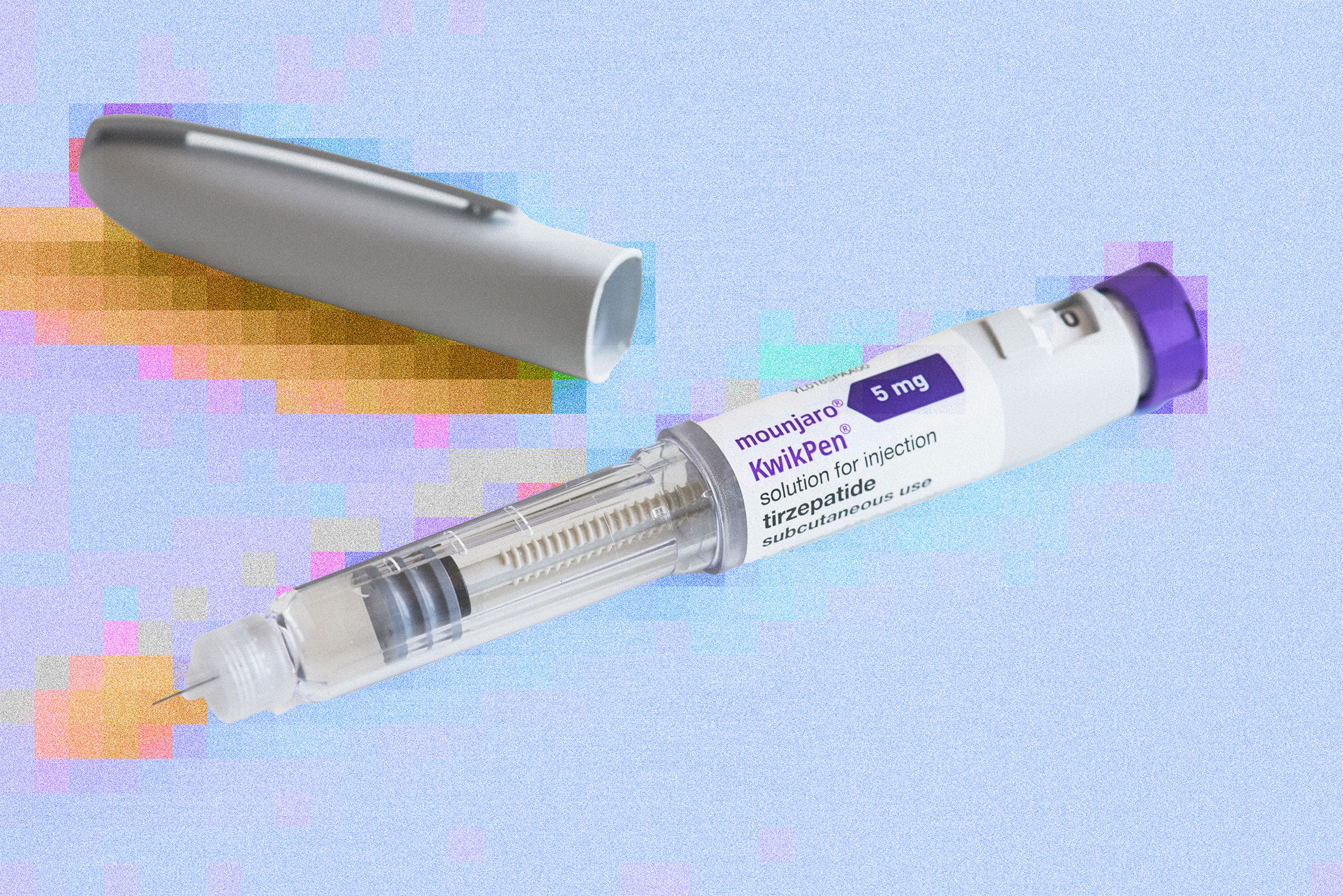Obesity wonder drugs Wegovy and Zepbound are already showing that they can reduce the risk of cardiovascular and chronic kidney disease in addition to helping people lose weight. Now, a US-wide trial will test whether tirzepatide, the active ingredient in Zepbound, may be an effective treatment for people with long Covid.
Part of a class of drugs known as GLP-1s, tirzepatide acts on receptors in the gut and the brain to regulate appetite. As a result, people shed pounds by eating less. But decreased body weight doesn’t fully explain the positive effects on the heart and kidney. Mounting evidence suggests that the drugs have a broad anti-inflammatory effect on the body—a mechanism that’s of interest for treating long Covid.
As many as 20 million people in the US have experienced long Covid, a chronic condition that lasts for at least three months after an initial infection. While more than 200 symptoms of long Covid have been documented, some of the most common include coughing, shortness of breath, brain fog, fatigue, mood changes, trouble sleeping, and body aches.
Scientists still don’t fully understand how and why long Covid occurs, but they’ve found persistent inflammation in many patients. This chronic inflammation may be caused by lingering traces of virus in the body or by misdirected antibodies, known as autoantibodies, that attack a person’s own cells and tissues. The hope is that tirzepatide could tamp down this inflammation to improve patients’ symptoms.
“The rationale for a GLP-1 drug is its powerful body-wide and brain anti-inflammatory properties,” says Eric Topol, a cardiologist and the director of the La Jolla, California-based Scripps Research Translational Institute, which is sponsoring the trial.
Scripps researchers are recruiting 1,000 people across the country who are 18 years of age or older and have medical documentation of long Covid. Unlike most medical studies, which typically require multiple in-person visits, the Scripps trial is fully remote. Participants will be randomized to receive either tirzepatide or a placebo by mail and will take it for a year. They’ll receive a fitness tracker so that researchers can measure their step count, an important indicator of fatigue. Participants will also get a smart scale and will weigh in regularly. Since GLP-1s are used for weight management, study investigators want to make sure participants don’t lose too much weight during the trial.
Julia Moore Vogel, coprincipal investigator of the trial who herself has long Covid, says the remote design of the trial was intentional. “For the long Covid population, it’s so crucial, because if you’re requiring people to come into a clinic, you’re systematically excluding the most severely affected folks who are housebound or bedbound. It was really important to us to make sure that those people are included.”
In-person drug trials for long Covid have struggled to recruit patients because the debilitating nature of the condition makes it difficult for patients to travel for studies.
A lack of investment from the pharmaceutical industry has also stalled research. And despite a hefty $1.8 billion investment into long Covid research under the Biden administration, progress on finding effective treatments has been slow. Getting vaccinated remains the best way to prevent long Covid, and studies have found that taking the antiviral Paxlovid during an infection can also reduce the risk of developing it.
“There is an urgent need for investment in long Covid clinical trials, and in decentralized clinical trials like this one in particular,” says Hannah Davis, cofounder of the Patient-Led Research Collaborative, a long Covid research and advocacy group. “Tirzepatide has shown to have anti-inflammatory, metabolic, and cardiovascular effects that could be promising to long Covid patients.”
One published study found that in 47 people with mast cell activation syndrome, or MCAS, a condition in which white blood cells release inflammatory chemicals, 89 percent benefited from a GLP-1, especially at low doses. The findings are relevant for long Covid, which shares many symptoms with MCAS.
David Kaufman, a private practice physician who specializes in MCAS, chronic fatigue syndrome, autoimmune diseases, and chronic infections, has been treating long Covid patients with small doses of tirzepatide at his clinic, the Center for Complex Diseases, in Seattle and Mountain View, California.
He started prescribing GLP-1s off-label after some of his patients started taking the drugs for weight loss but were also reporting less fatigue. “I want to be cautious. This doesn’t cure everything. What it does is it seems to move the needle so patients can become more functional, but they may still need some fine tuning with the other medication,” he tells WIRED.
To avoid unwanted weight loss and the gastrointestinal side effects that come with GLP-1s, Kaufman typically starts patients out on one-tenth of the standard starting dose of 2.5 milligrams. He currently has 40 to 50 long Covid patients who are taking microdoses of tirzepatide. At a long Covid workshop in September, Kaufman presented his and other providers’ experience treating more than 350 patients with microdosing. They have found a 60 to 90 percent decrease in fatigue, brain fog, pain, and MCAS symptoms.
The Scripps trial, meanwhile, is using the standard 2.5 milligrams of tirzepatide as the starting dose. An NIH-sponsored trial also plans to test a GLP-1 drug for long Covid.
Although GLP-1s are showing knock-on benefits for a variety of symptoms and conditions, there’s reason for caution. Given the spectrum of symptoms associated with long Covid, there’s unlikely to be a one-size-fits-all treatment.




